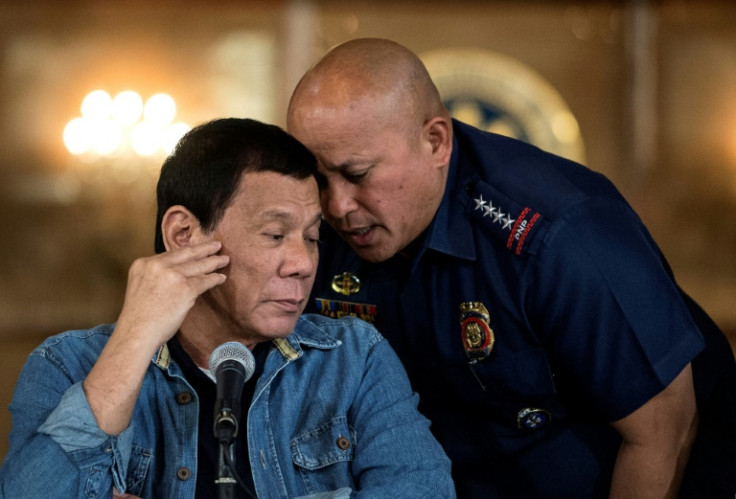Philippines Expresses Disappointment Over ICC's Rejection Of Appeal To Block Duterte Drug War Probe

KEY POINTS
- Marcos previously said the ICC's investigation was a "threat" to Philippine sovereignty
- Sen. Tolentino said the decision doesn't change the ICC's lack of authority in pursuing the probe
- Sen. Dela Rosa, a defendant in the ICC case, said he was "unbothered" by the decision
The Philippine government has expressed disappointment over the International Criminal Court's (ICC) decision Tuesday to deny the country's appeal to block an investigation into the Duterte administration's drug war.
The Philippines' Office of the Solicitor General (OSG), which oversees investigations on government officials or agents, said it was "disappointed" by the ICC's judgment.
"The majority decision does not alter the fact that the Republic [of the Philippines], through its various national and local agencies, remains fully committed to the internal investigation and prosecution of allegations connected to the anti-illegal drug campaign," the OSG said in a statement. "The Philippine Government will not be deterred by today's outcome."
UPDATE: The Office of the Solicitor General says it's "disappointed" on the ICC appeals' chamber denying the PH appeal vs drug war probe.
— Jairo Bolledo (@jairojourno) July 18, 2023
The OSG serves as the PH government's primary legal counsel. @rapplerdotcom pic.twitter.com/LZsy383rV0
Earlier this year, Philippine President Ferdinand Marcos Jr. said the ICC's probe of the previous administration's drug war was "a threat to our sovereignty." Marcos Jr., a close ally of former president Rodrigo Duterte, said the probe was regarded "as an intrusion" into the country's internal affairs.
The Philippine Department of Foreign Affairs also reiterated in a statement late in March that the country "disassociates itself" from the Summit for Democracy Declaration's reference to the ICC as having an important role in implementing accountability under international law.
Sen. Francis Tolentino, who chairs the Senate Committee on Justice and Human Rights, said in an emailed statement to International Business Times shortly after the ICC made its decision that the appeal's denial "does not grant the ICC the jurisdiction which it lacks from the very beginning."
Tolentino said no foreign entity had the authority to investigate the Duterte administration, adding if the court insisted otherwise, it "would only highlight ICC's persistent disregard for Philippine sovereignty."
Duterte withdrew the Philippines from the ICC after the court launched a preliminary investigation into the anti-drug campaign in 2019. Marcos Jr. said last year that the country will not rejoin the ICC.
Last month, a public redacted report from the ICC Registry's Victims Participation and Reparations Section revealed the victims and families of the drug war "unanimously and strongly urge" the court to resume its investigation.
The report noted that 350 individual victims of the drug war and 165 victims' kin agreed with the probe's resumption over justice and accountability in the country remaining "largely elusive."
Meanwhile, Sen. Ronald "Bato" Dela Rosa, who was among the defendants in the ICC's case alongside Duterte and dubbed the "architect" of the drug war, said Tuesday he was "not bothered" nor concerned about the decision, as per The Philippine Star. He said his only concern was that he couldn't travel to countries "that are loyal" to ICC, adding he may just travel to China and Russia. Dela Rosa served as a chief of police under the Duterte government.
According to data from the Philippine Dangerous Drugs Board, a total of 6,252 people have died during anti-drug operations since the Duterte administration launched a drug war. More than 345,000 people have been arrested, the board said.
The UN Human Rights Office of the High Commissioner said in a 2020 report that between 2016 and 2020, at least 8,633 people were killed in relation to the drug war.
© Copyright IBTimes 2025. All rights reserved.






















